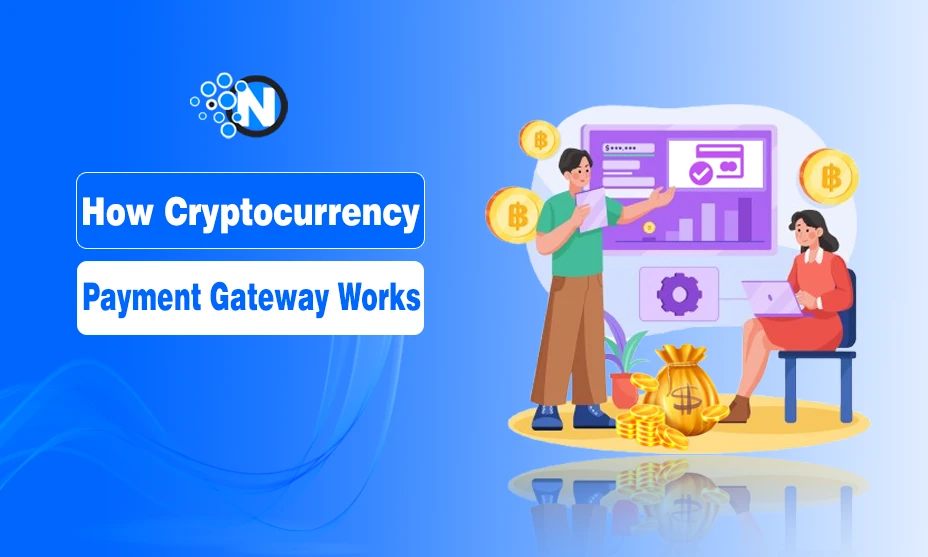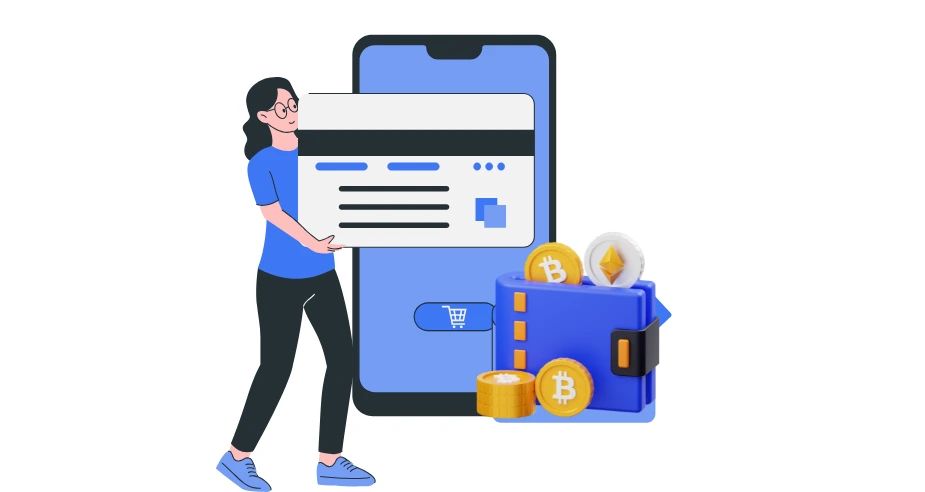How Does a Cryptocurrency Payment Gateway Work?

The use of cryptocurrency in the business world is evolving. It is gaining traction as companies explore its potential benefits and challenges.
According to a recent study, the global cryptocurrency market is projected to hit $5.2 billion by 2028, driven by the growing adoption of crypto payments.
Modern businesses realize that crypto isn’t just for computer experts anymore, it’s a real, viable way to accept payments and reach global markets.
But how exactly does it all work?
Let’s break it down below!
What Is a Cryptocurrency Payment Gateway?
A cryptocurrency payment gateway is a tool that allows businesses to accept crypto payments.
It is just like other payment options like PayPal or Stripe, but instead of fiat currencies like USD or EUR, it deals with digital assets like Bitcoin, Ethereum, or stablecoins.
If you’re a business owner looking to stay ahead of the curve, setting up a cryptocurrency payment gateway can open the door to a whole new world of customers.

It works behind the scenes to convert digital payments into a form businesses can use while still ensuring a smooth customer experience.
This gateway bridges the gap between sellers and blockchain networks to make crypto payments fast, efficient, and easy to implement for both customers and businesses.
How It Works
The process might sound complex, but it’s actually pretty straightforward.
Here’s a step-by-step breakdown of how a cryptocurrency payment gateway works:
STEP 1: Customer Chooses Crypto at Checkout
The process starts when a customer decides to pay with crypto. Merchants with a crypto payment gateway have options available alongside traditional payment methods like credit cards or bank transfers.
STEP 2: Gateway Generates a Payment Address
Once crypto is selected, the payment gateway generates a unique wallet address (QR code or string) for the transaction. This wallet address is where the customer will send their cryptocurrency.
STEP 3: Transaction Verification
The customer sends the crypto, and the payment gateway verifies the transaction on the blockchain. This step ensures the funds have been sent, and the payment is valid.
STEP 4: Conversion (Optional)
To reduce volatility risk, most crypto payment gateways convert the received cryptocurrency into fiat currency immediately. Businesses can choose to receive the payment in crypto, fiat, or even a mix of both.
STEP 5: Funds Settlement
Finally, the payment gateway settles the funds into the merchant’s account. If converted, businesses receive the exact fiat amount, making it easy to manage earnings without worrying about crypto market swings.
Key Features of Cryptocurrency Payment Gateway
A great cryptocurrency payment gateway comes packed with features that make accepting digital payments simple and secure:
- Multiple Cryptocurrency Support: Accepts popular digital currencies like Bitcoin, Ethereum, USDT, and more.
- Instant Conversion: Protects businesses from price volatility by instantly converting crypto to fiat.
- Low Transaction Fees: Crypto gateways typically charge lower fees compared to traditional payment processors.
- Security and Fraud Prevention: Blockchain verification ensures secure transactions, minimizing the risk of fraud or chargebacks.
- Global Accessibility: Accept payments from customers worldwide without currency exchange hassles.
Choosing Cryptocurrency Payment Gateway
Choosing the right cryptocurrency payment gateway is crucial for businesses looking to accept digital currencies. Here are some key factors to consider when it comes to choose a payment gateway for crypto payments:
- Check for Supported Cryptocurrencies
- Transaction Fees and Charges
- Fiat Settlement Options
- Security and Protection
- Integration Options
- Customer Support
- Geographic Coverage
Advantages for Businesses
So, why should businesses care about adding crypto payments to their arsenal?
Here are some of the top benefits:
Access to New Markets
Crypto payments boost business accessibility to international markets and enables businesses acquire modern clients who use crypto most for payments. It is even more suitable for international sales since cryptocurrency transcends physical boundaries.
Lower Transaction Costs
Traditional payment processors usually charge up to 3-5% per transaction. Crypto gateways reduce those fees to 1% or less. It helps save businesses money in the long run.
No Chargebacks
Chargebacks are a nightmare for merchants. Crypto transactions are final and irreversible, protecting businesses from fraudulent chargebacks.
Faster Transactions
While bank transfers can take days to settle, crypto payments are processed in minutes. Businesses can access their funds faster and improve cash flow.
Appealing to a Growing Audience
As crypto is becoming popular among modern customers, more customers want to use their digital assets for real-world purchases. Offering a crypto payment option can help businesses stand out and attract this audience.
Conclusion
Cryptocurrency Payment gateways are dramatically transforming ways businesses accept cryptocurrencies payments in the market.
These tools help to overcome the existing gap between P2P commerce and blockchain by ensuring that crypto transactions for such organizations are effectively secured, easy to process, and open for all sorts of establishments.
Lower fees in this competitive digital world, accepting crypto payments is not a choice as a business anymore, it is a smart strategy to adapt for success.




